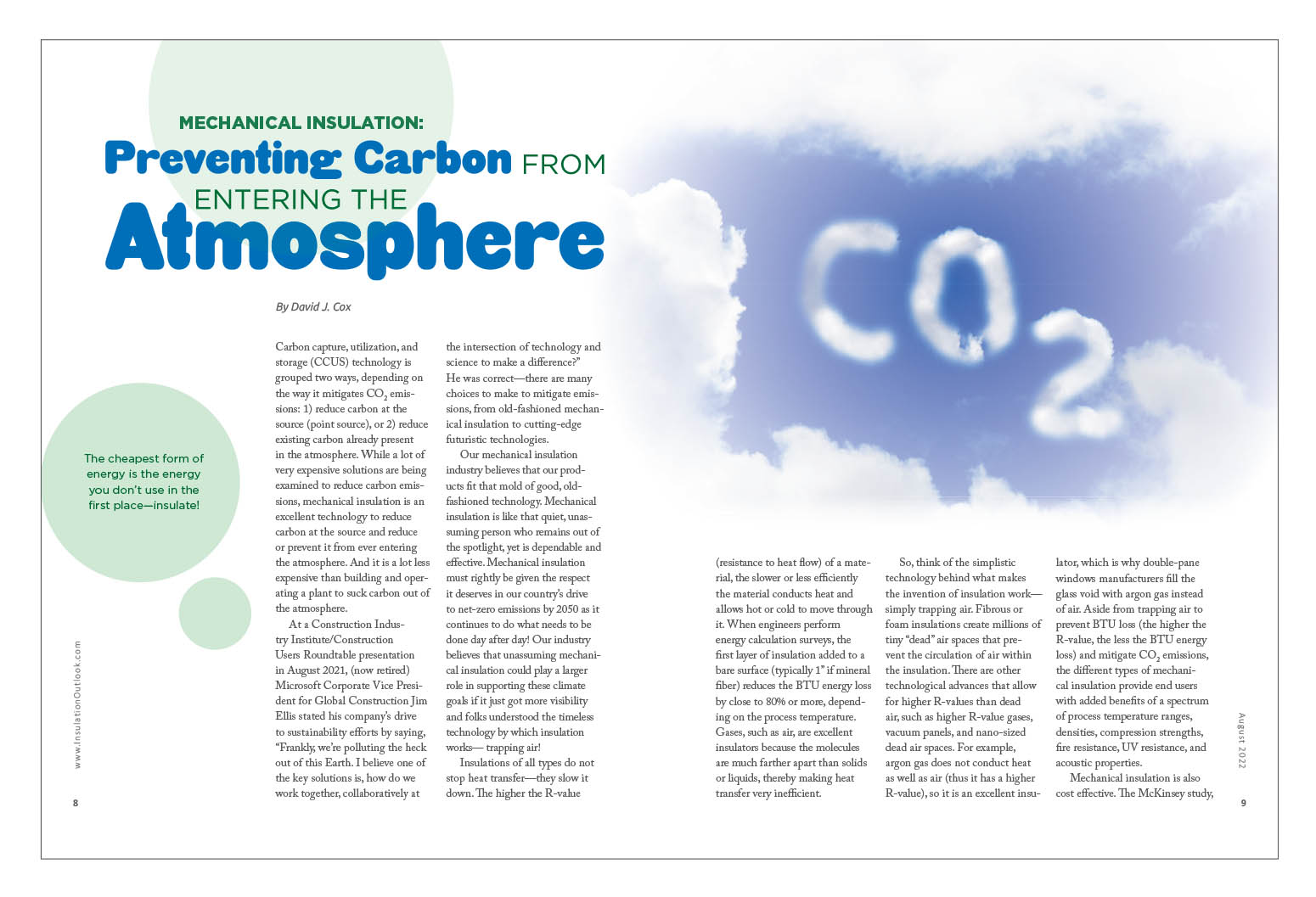February 2020

Also in the February 2020 Issue:
Commercial Building Code Compliance: A Look at the Evolution of Energy Codes and Commercial Building Envelopes
The International Energy Conservation Code (IECC) and ASHRAE 90.1 are internationally recognized codes and standards used in the United States for building energy efficiency. Much like a vocabulary drill, we often hear the terms IECC and ASHRAE 90.1 discussed at industry meetings and see them written throughout the literature, but what do these designations actually
Commentary: IECC Code Alert
Many in our industry have voiced concerns about recent International Code Council (ICC) updates to the 2021 International Energy Conservation Code (IECC). This commentary highlights frequently asked questions by NIA members about what the new language may mean for the mechanical insulation industry. Q: What is the new code language regarding CE150-19 Part I, IECC®:
Checklist for Specifying Insulation
There is a disconnect between engineering specifications and codes requirements when it comes to the mechanical insulation industry. Specifications can be developed from either outdated or non-compatible applications that can create confusion and lead to a faulty design for mechanical insulation equipment. Now is the time to help engineers bridge that gap by providing standardized
Utilizing Mineral Fiber Insulation to Slow the Spread of Fire in Commercial Buildings
Many factors influence the resilience of a commercial building, especially as it relates to protection against fire. A building’s design and the materials it is designed with play a critical role in the safety of building occupants during a fire event. Buildings today are equipped with complex fire safety measures, all of which should be
Safety Matters: Change is in the Air
In a previous Safety Matters column, we established that due to the location of much of the piping, ductwork, and other equipment requiring mechanical insulation; working at heights is one of the biggest hazards in the insulation industry. Aerial lifts have become invaluable for contractors, maintenance personnel, and insulation inspectors to safely access these elevated

